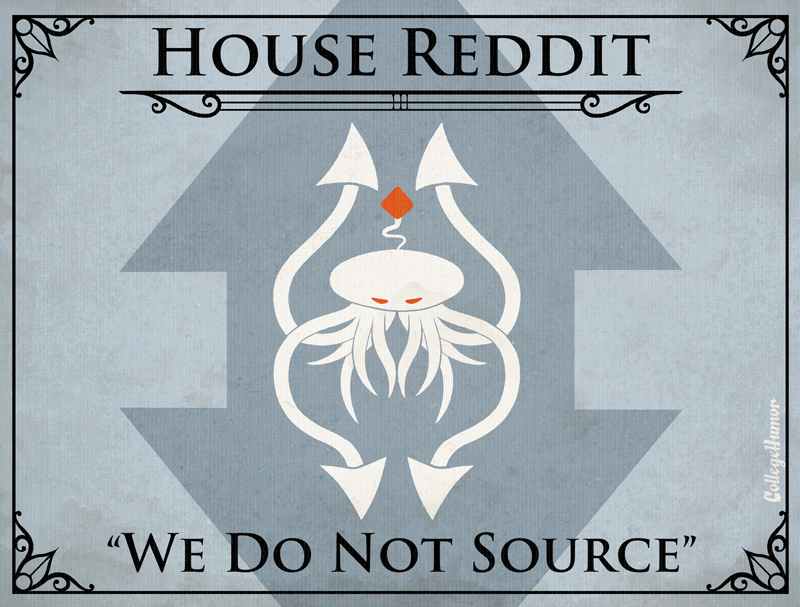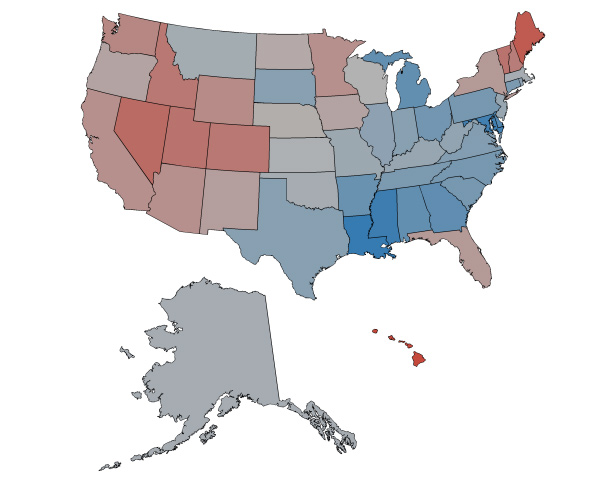
“Dark Wings, Dumb Words.”

Haunting the Web Since 1999


All in all, a really entertaining World Cup. And perhaps it’s because I reside in DC and spend time on Twitter, two of the most futbol-happy environments around stateside, but this felt like the year soccer might have finally broken through in America for real. Time will tell, I suppose. In the meantime, I should do a better job of supporting the MLS. Valar Futbolis!

Er…let’s not overdo it. Existing structures of power haven’t changed at all, and, after a bad week’s press, JP Morgan is still laughing all the way to the bank. Still, I was proud to get in early on the co-opting of JP Morgan’s inane #AskJPM forum on Twitter last week, which got tweets of mine mentioned in BusinessWeek, WaPo, The New Yorker, and various other venues — undoubtedly the strangest being a somber tweet-reading by the venerable Stacy Keach. In any case, if any of those links have led you back here to GitM this week, welcome, and thanks for dropping by.

Happiness where are you? I’ve searched so long for you. A statistical analysis of states’ relative happiness, as determined by tweets. (Red states above are happy, blue states are not.) David Simon is 2-for-2: Next to the mouth of the Mississippi, the Maryland-Delaware area is apparently the saddest in the nation. Perhaps due to proximity to Washington DC? Definitely maybe.
In probably related news, a different map of the United States shows the most popular places cited in Craigslist’s Missed Connections. “The most popular place to spot potential love in Texas, New Mexico, Missouri, Louisiana, Arkansas, Mississippi, Alabama, Idaho, Montana, South Dakota, Ohio, West Virginia, Tennessee, North Carolina and Florida? Wal-Mart.”
Of course, this begs the question: Do people actually ever meet up on Missed Connections? Every time I’ve perused them, that section is overwhelmingly the Boulevard of Broken Dreams, just damaged, lovelorn people sending out messages in a bottle to lost exes who are actively ignoring them.

I was thinking of starting up the movie reviews around here again for 2013, but having just spent a looong time on another giant project that few if any will ever peruse, I’m not really seeing the point of dedicating myself to spending even more hours of my day writing long-winded reviews that nobody ever reads. It’s just a lot of work with very little gain. I’ve been writing this blog for over 13 years and the reviews for over ten — If either were ever going to gain an audience, they would have done so by now.
As for politics…eh. On the domestic front, all reasonable and common-sense attempts at achieving forward progress have been stymied for years now, mainly because of bipartisan infatuation with a totally fake problem. Sure, Obama (finally) talked a good game last night about climate change, voting rights, infrastructure, equal pay, housing, the minimum wage — things we expected from a progressive president four years ago, and that would undeniably make a profound difference for a lot of American families. But this is year five of this presidency — We know the score by now. When push comes to shove, he’ll be promoting Simpson-Bowles nonsense, extolling the Grand Bargain again, and advocating a chained CPI, all because, presumably, those evil, evil Republicans made him. Good cop, bad cop.
Over on foreign policy, our Hope-and-Change president has accorded himself the power to kill anyone he so desires by executive fiat. And the response? Ostensible progressives back this ridiculous play, and a full 83% of America is totally cool with Death from Above without due process. Awesome.
Speaking of due process, it is flat-out-ridiculous that we live in a world where Aaron Swartz was hounded to suicide by a DoJ-enabled Javert for freeing up JSTOR articles, of all things, and Bradley Manning is kept in a tiny box as Public Enemy #1 for exposing bad behavior by the military. And yet, our national torture experiment has still gone unpunished (because, hey, it worked!), and not a single bankster of note has been prosecuted, despite the massive levels of fraud that have been exposed and that brought the American economy to its knees. To the contrary, the president can’t stop asking self-serving and patently corrupt assholes like Jamie Dimon and Lloyd Blankfein how we can better structure our public policy to cater to their whims.
Admittedly, I partake in it myself semi-often, but I’m just tired of a Twitter-driven political-journalism culture that seems to think that the lulz of Marco Rubio being really thirsty is a more pressing issue to cover than the myriad holes in his obviously stupid, self-serving, and faith-based ideas. Or that Jack Lew having a funny signature is a more vital point to discuss about the probable next Treasury Secretary than whatever the hell he was doing at Citigroup when the goddamned house was burning down.
I hate on the hipster Twitter kids, but establishment journalism is even worse. We live in a world where the totally inane Politico rules the roost and “wins the day”. Where our papers of record will keep warrantless wiretaps and drone bases quiet for years because the powers-that-be asked them to. Where idiot right-leaning “centrists” like David Brooks, David Gergen, Gloria Borger, and Cokie Roberts are queried for their inane views constantly, even though they don’t know anything and have never done anything with their lives but constantly mouth Beltway platitudes as if they were Holy Scripture. Where “journalists” like Chuck Todd, John King, and Jake Tapper — the latter of whom, let’s remember, made it big by kissing-and-telling on his Big Date with Monica Lewinsky — are taken seriously because they tsk-tsk about deficits like Serious People™ and passively nod along whenever obvious liars are lying. This isn’t journalism. It’s Court Stenography, Versailles-on-the-Potomac.
Ain’t no use jiving. Ain’t no use joking. Everything is broken. So, no, I don’t feel particularly inclined to talk about politics these days either, because there’s only so many times you can bellow in rage about it all, especially when nobody swings by this little corner of the Internet anyway. I’m not officially quitting GitM or anything, but let’s be honest. I’m not really what sure when, if ever, it’ll get its groove back. I’m not sure I see the point. And besides, as Richard said, a withdrawal in disgust is not the same as apathy.

In surveying the recent foiled Times Square car-bomb attempt, Slate‘s Fred Kaplan makes the case for the prescience of Jane Jacobs, and explains why Dick Cheney is, yet again, wrong. (Kaplan also makes a case for security cameras which I’m less sanguine about — but, hey, two out of three ain’t bad.)
Speaking of the Times Square situation, Twitter wag pourmecoffee had some arch responses to the near-disaster: “Somebody saw something in Times Square. If Cheney were still around, he’d torture entire Lion King cast for answers,” and “When we catch this Times Square guy, I assume he will be too scary to try in New York.” Ah, Twitter.
Hey all. As we approach the decade mark next month, the readership around here at GitM continues to dwindle, which is primarily my fault for not updating as much as I’d like. Nonetheless, if and when it gets quiet ’round here, I encourage you to also check out my Twitter feed, which is easier to update in the midst of more frantic weeks like last one. (Memo to myself: Columbus Day, and three-day-weekends in general, will mean a lot of speechifyin’ in Congress’ home districts.)
Yeah, I was skeptical about Twitter earlier in the year, but I’m definitely coming around. Within an hour of news of President Obama’s Nobel prize win, for example, (which I’m neither here nor there about — it seems goofy, yeah, but I was already down on Nobel anyway), there were dozens of wry and amusing quips going around the twitterverse. My favorite two were variations on “Obama, I’mma let you finish but Bono has been working his ass off for this!” and “Uh…did the Nobel committee just miss the fact that Obama bombed the f**king moon?!”
Another good example: the Baucus committee tanking the public option in late September brought on a similar flurry of bon mots: “Senators should be required to make the little cash register ‘ka-ching!” noise when they vote.” “Well the insurance Industry is looking forward to its Baucanalian Orgy.” “75% of Americans support #publicoption, but only 35% of the Senate Finance Cmittee support it.” “Health care industry must pay capital gains on Senate Finance Committee members this year as investment is cashed out.” Etc., etc.
Its immediate posting benefits aside, Twitter has definitely grown on me as a fertile hothouse environment for exactly this sort of choice, top-shelf snark.
“All I have is a voice to undo the folded lie, the romantic lie in the brain of the sensual man-in-the-street and the lie of Authority, whose buildings grope the sky: There is no such thing as the State, and no one exists alone; Hunger allows no choice to the citizen or the police. We must love one another or die.” W.H. Auden‘s “September 1, 1939” turns 70.
Via BDL, and seen where “ironic points of light flash out wherever the Just exchange their messages,” a.k.a. Twitter.
The woeful state of American political journalism, in a nutshell (and in two parts):
1. CNN and WP media poobah Howard Kurtz, on Twitter today: “Booking hell: All pundits are in the Hamptons or Vineyard. Intelligent discourse apparently ceasing.“
2. CNBC to Teabaggers today: Can you guys please stage us a really violent rally? “We have a media request for an event this week that will have lots of energy and lots of anger. This is for CNBC.“
So. Broken.

As protests — and violence — escalate in Tehran after last week’s dubious election returns, the world increasingly looks to social networking sites to ascertain what’s really going on in the streets. The revolution may not be televised, but — so far at least — it seems to be managing quite well with Twitter: “This is a country where you have tens of thousands of bloggers, and these bloggers have been in a situation where the Internet has been filtered since 2004. Anyone worth their salt knows how to find an open proxy [to get around government firewalls and filters], knows how to work around censorship…The Iranian government, by filtering the Internet for so long, has actually trained a cadre of people who really know who to get around censorship.“
Update: Over at Salon, Iranian-American journalist Hooman Majd (who’s making the rounds — I saw him on the Lehrer News Hour yesterday as well) argues that the role of social networking has been vastly overstated: “More people have access to the Internet in Iran than other Middle Eastern countries but often it’s dial-up, it’s slow, they don’t do it like we do all day long…The depiction of the Internet revolution isn’t quite accurate. We’re putting our own image onto Iran. Of course there are people Twittering from the demonstrations; they’re just not representative of the vast majority of Iranians. What was so heartwarming about this whole thing is that the Iranian people stood up in mass and said you can’t take this away from us.“